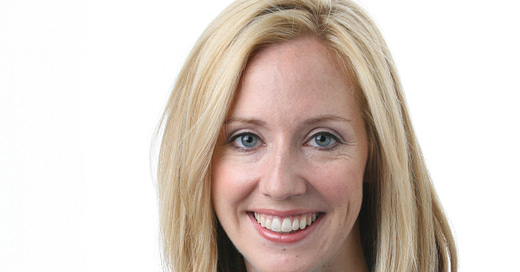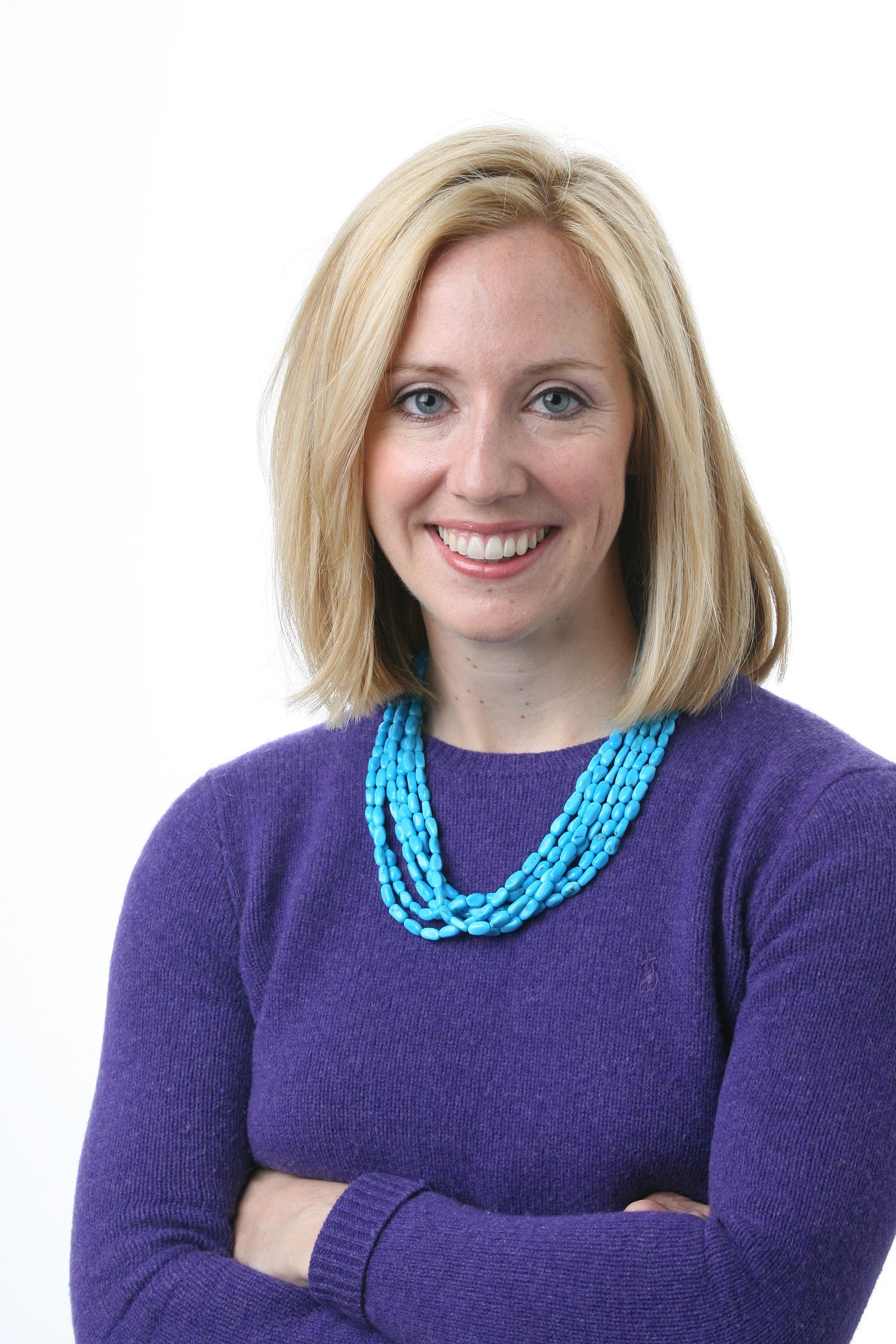EN Week 5: Louise Story "Often people think audiences read like journalists do. They don’t."
Good morning, there are quite a few new readers this week after Adam’s blog post, (thanks Adam) and welcome to all the newbies. Typically, the week after I am praised for focusing on the ‘day-to-day’ in Newsrooms I have a profile of someone in a more senior role. Someone who’s job it is to figure out how to help the people doing the day-to-day to be effective.
I have always believed the best thing you can do as a manager is create the space for your team to be successful. These roles and the influence they have on how quickly (or not) and in which direction newsrooms evolve are crucial.
To talk us through how she manages a huge range of responsibilities, disciplines and roles let me introduce Louise Story, Chief News Strategist and Chief Product & Technology Officer at the WSJ.
What does your title mean in practice?
I am a senior news leader responsible for our news strategy, and I set the strategic direction for the entire user experience of the WSJ, from content to subscriber onboarding to ad loading, and I run the teams that operate all of our data science, user research, product, design, engineering, community interaction, innovation, SEO, newsletters as well as running a team of embedded digital strategy within news departments who work across the full-newsroom for news content strategy.
I also work across the full WSJ leading the teams that design and build our product experience. The teams I lead are part of what we call The Digital Experiences and Strategy unit (DXS).
Where does the role sit/what department does your role report to?
I jointly report to Matt Murray, the WSJ Editor in Chief, and Daniel Bernard, Dow Jones’ Chief Experience Officer.
When was the role created, what attracted you to it and what is your background?
I’ve been running content strategy at The Wall Street Journal since Sept 2018. I took on the brand-wide Chief Product & Technology Officer role in March 2019. I took this job because I love journalism and love being involved in news that makes a difference. Working across the full audience experience -- from content to technology -- allows me to help the WSJ move quickly in creating impactful journalism and growing its audiences.
And the chance to be a CTO? I have a life-long fascination with technology and am proud to be one of the first women to be a major media brand’s chief technology officer.
What is the most unexpected thing about the role?
I lead across people of all the skill sets and backgrounds you find in a modern media company today. Everyone from editors and reporters to engineers, adtech specialists, community moderators, data scientists, designers and customer acquisition product managers. I have found we all have more in common than we have differences. Even sometimes how we run meetings.
After one of our VPs of Engineering Mike Finkel attended the morning news meeting, for instance, he remarked “The morning news meeting felt very much like the Agile daily standup we do in our product teams. The give and take between different groups echoed our conversations between product, design and engineering. The experience reinforced for me how foundational collaboration and communication are to our shared success, regardless of our job function.”
A unifying message I have used in leading is that we are all focusing on the same thing --- our members, our audiences, our customers, our users. Those are all the same people -- I call them “The MACU” -- and I am leading our teams to think of those people first as we make decisions. I wrote about this MACU-first approach here.
I also think as you lead across people of many different disciplines, it’s important to remember how much variety there is within each of your teams and within people with supposedly the same skill set. And it’s a virtue to have that variety! I don’t want reporters all with the same ninja skills and nor do I want engineers with all the same specialties or outlook.
I try to create an environment and ways of working that let people in all our disciplines show off their own ninja skills. I want people to grow as people and professionals each month they work with us. I want people to find parts of our stack and parts of our news report that they own. To do so, we have to give them headspace to experiment in their areas, we have to think of many of their projects as ongoing, where they can keep iterating even after “delivering,” and we have to listen to what they have to share with us.
What is the most challenging thing about the role?
Helping to keep people all over the WSJ focused on doing the most high-impact work that resonates with our growth audiences.
Often people think audiences read like journalists do. They don’t. And so I push people to look to user research and data to understand what works with our audiences.
What is the most useful thing you have learnt?
I work with people in many parts of the company with many different skillsets. I jump from orbit to obit in 30-minute hangout sessions and context change constantly. It’s important when I come into calls with people who aren’t as actively talking to people across the company that I take the time to provide context on areas we discuss and help bring them on the broader strategic journey we are on. That means I repeat some of the same things a few times a day or week. That’s OK. A big part of my job is communication.
What skills do you need for your job/do you find yourself using most often?
Writing; communicating; presenting; data analysis and strategic thinking, prioritizing and planning; interpersonal skills
Where do you go to find inspiration, what from outside journalism do you take back and apply to your role?
I’m a rock climber. There’s tons of problem-making skills I practice when finding routes that help me persevere in looking for creative solutions to work decision-making
How do you make hard decisions?
It depends on what the hard decision is about. If it’s a hard decision in an article --- whether to use an anecdote from an anonymous source or to release a transcript of a sensitive call or other things like that - I draw on my years of experience reporting and editing journalism on some of the most sensitive topics in business and government. Also at the WSJ, we have a strong Standards team that is active in consulting about hard decisions in stories.
When it comes to strategic questions about longer-term matters, what topics are most important to cover, what product features are best to add, what audience groups we should focus on for more outreach, I look at those with research, data and inclusive consultation with others.
What do you wish you knew when you took the job?
How many slide decks I’d be making! (I’ve gotten a lot better at it.)
If you hire, what are you looking for above all else?
An appetite for lifelong learning and growth. People who love to learn and excel at new things can grow into their roles and with the changing needs of an organization.
You can hear more about how I think about who to hire and careers in this Yale University podcast
What story or project are you most proud of so far? Tell us about how it came to be and why you are proud of it.
At the WSJ, we undertook user research and product and coverage planning for the 2020 election back in the spring of 2019. That early start allowed us to create many new product features to be used throughout the election and helped shape our coverage strategy in impactful ways.
Focusing on your audience needs early on can be impactful and it allowed us to reach and engage with more people throughout the election. The results represented such great audience-focused collaboration among our reporters, editors, engineers, product and design professionals, community specialists and data teams.
I spent much of my early career as an investigative journalist and I have many stories that I’m proud to have written. One of the most impactful stories I did as a piece during the financial crisis about toxic mortgage bonds created by Goldman Sachs and other banks (which led to large government cases against the banks). Another impactful piece of work I did was uncovering the biggest kleptocracy in history as part of a series I led on shell companies and illicit money in real estate. You can read that original story where I uncovered the scheme here and check out my film, “The Kleptocrats.”
What’s one thing you thought would be would happen in the news industry when you started but hasn’t? Why?
I thought there would be more of a convergence between text, audio and video. Now those things are offered by many of the same companies and have converged on platforms, but they haven’t really yet converged in story telling and news user experiences.
Keeping up
What is one book/blogpost/podcast/link you’d like to share?
Here’s a post I wrote for my team’s Medium page about a great shadowing experience we did this Fall
What or who do you like to read/listen to/watch/subscribe to/follow to keep up with how the industry is changing?
Evolving Newsroom of course. But I also like to experience new platforms and features like Clubhouse and other things people are buzzing about.
What is your Favourite film/TV series about the news?
“The Kleptocrats” -- the feature-length film I wrote and produced about the biggest kleptocracy in history. It aired on the BBC, NYC Doc Fest, etc and is on Amazon and iTunes




